“Can dogs eat rice pudding?” This is a common scenario for pet owners, especially during the festive seasons when the urge to treat our pets like family is at its peak. But when sharing human foods with our dogs, caution is key.

Rice pudding, a beloved dessert across various cultures, may seem harmless enough, but it’s important to dive deeper into its ingredients and how they affect canine health. Let’s explore whether rice pudding is a safe dog treat or if this human favourite should remain off their menu.
In this next section, I’ll define rice pudding and discuss its popularity among humans to set the stage for a detailed analysis of its safety for dogs.
What is Rice Pudding?
Rice pudding is a traditional dessert made from simple ingredients: rice, milk, sugar, and sometimes eggs and flavourings like vanilla or cinnamon. This dish is special in many cultures worldwide and is often served as comfort food during family gatherings or festive celebrations. Its creamy texture and subtly sweet flavour make it a favourite among people of all ages.
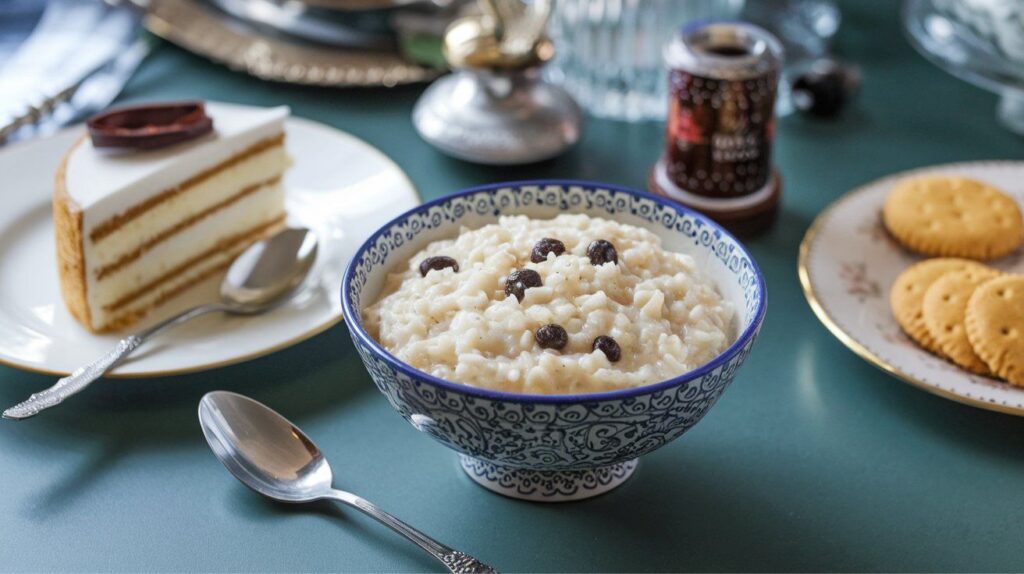
While humans can enjoy this treat without much concern, dogs have different dietary needs and restrictions. For instance, rice is a common ingredient in many dog foods due to its energy-boosting carbohydrates and digestibility; the other typical ingredients in rice pudding—mainly milk and sugar—pose potential health risks for dogs.
For many dogs, milk is a source of lactose, which many adult dogs struggle to digest properly, leading to stomach upsets and diarrhoea. Sugar, on the other hand, offers no nutritional benefits to dogs and can contribute to obesity and diabetes, conditions that significantly affect a dog’s quality of life and longevity. As pet owners, understanding these dietary impacts is crucial when sharing human food with our canine companions.
Can Dogs Eat Rice Pudding?
Yes, dogs can eat rice pudding, but it should be plain and free from any added sugars or artificial sweeteners, which can harm their health. It’s important to offer only small portions as an occasional treat, not a regular part of their diet. Always check with your vet first to ensure it’s safe for your specific dog, especially if they have health issues or dietary restrictions. Moderation is key to safely including human foods in your pet’s diet.
Risks of Feeding Rice Pudding to Dogs
While a little taste of plain rice pudding occasionally might not be immediately harmful, regularly including it in your dog’s diet can lead to several health issues. Here are the primary risks associated with the common ingredients found in rice pudding:
Sugar and Fat
High sugar content is one of the most concerning aspects of rice pudding for dogs. Dogs metabolize sugar differently than humans, and excessive intake can lead to obesity, diabetes, and even dental problems. Similarly, the fats from the milk and butter used in rice pudding can increase the risk of pancreatitis, a serious and painful condition for dogs. Both of these ingredients contribute to a calorie-rich, nutrient-poor profile that is far from ideal for your pet’s health.
Dairy Products
Most adult dogs have some degree of lactose intolerance. This means that the milk in rice pudding can cause gastrointestinal upset, including bloating, gas, diarrhoea, and discomfort. While some dogs might handle small amounts of milk without issue, it’s a risk that could unnecessarily distress your pet.

Toxic Ingredients
Flavoured versions of rice pudding can be even more dangerous due to ingredients like raisins, chocolate, or artificial sweeteners like xylitol, all of which are toxic to dogs. Raisins can cause sudden kidney failure, chocolate is well-known for being poisonous to dogs, and xylitol can lead to a rapid, life-threatening drop in blood sugar as well as liver damage.
Nutmeg and Other Spices
Some recipes for rice pudding include spices like nutmeg, which is toxic to dogs even in small amounts. Nutmeg can cause seizures and central nervous system problems in dogs. While a tiny amount might not cause immediate harm, it is best to avoid sharing foods containing this spice with your dog.
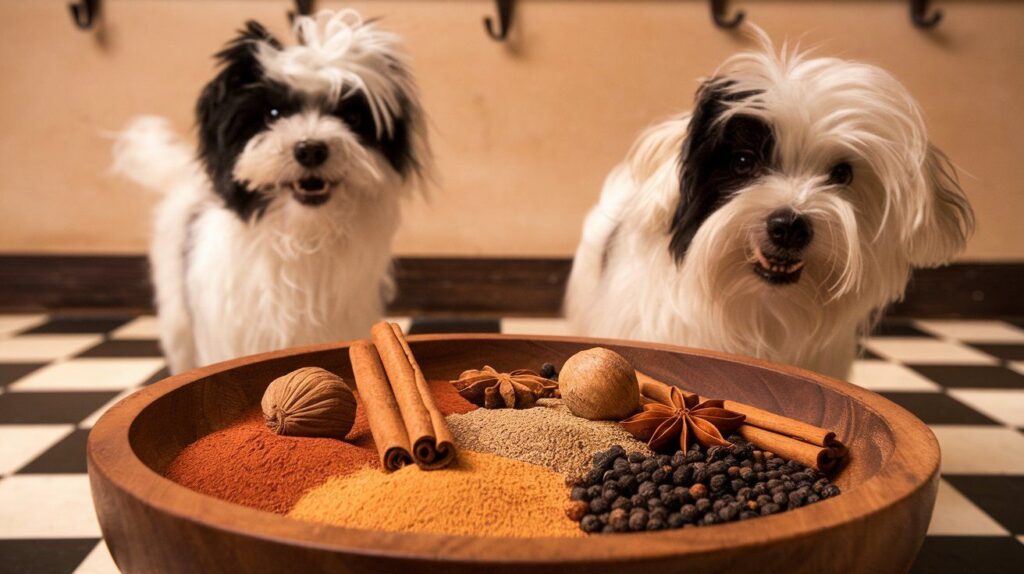
Given these risks, it’s clear that rice pudding isn’t a suitable treat for dogs. The potential for health complications far outweighs the momentary pleasure your dog might get from a taste. It’s always better to stick to treats formulated specifically for dogs, considering their unique dietary needs and restrictions.
Healthier Alternatives to Rice Pudding for Dogs
Given the risks associated with traditional rice pudding, it’s wise to consider healthier alternatives that cater to the dietary needs of dogs. Here are some dog-safe treats and snacks that can satisfy your pet’s sweet tooth without the health risks associated with human desserts:
Homemade Dog-Friendly Rice Pudding
You can make a modified version of rice pudding that is safe for dogs by excluding harmful ingredients like sugar, milk, and spices. Instead, use plain cooked rice, a small amount of coconut milk (which is lactose-free), and a sprinkle of cinnamon (in moderation, as it’s safe for dogs in small amounts). This version provides a creamy treat without added sugars or dairy.

Plain Rice Porridge
A simple rice porridge made with water and plain rice can be a comforting treat for dogs, especially when they have stomach issues. It’s gentle on the stomach and easily digested, providing hydration and energy without unnecessary fats or sugars.
Vegetable and Rice Treats
Mix cooked rice with pureed pumpkin or sweet potato. These vegetables are safe for dogs and provide additional nutrients like fibre, aiding digestion and promoting overall health. You can create small bite-sized treats that are perfect for rewarding your dog. Adding small pieces of cooked chicken necks or feet can introduce a protein boost and a crunchy texture that dogs love while ensuring they get essential nutrients without the risks associated with raw bones.
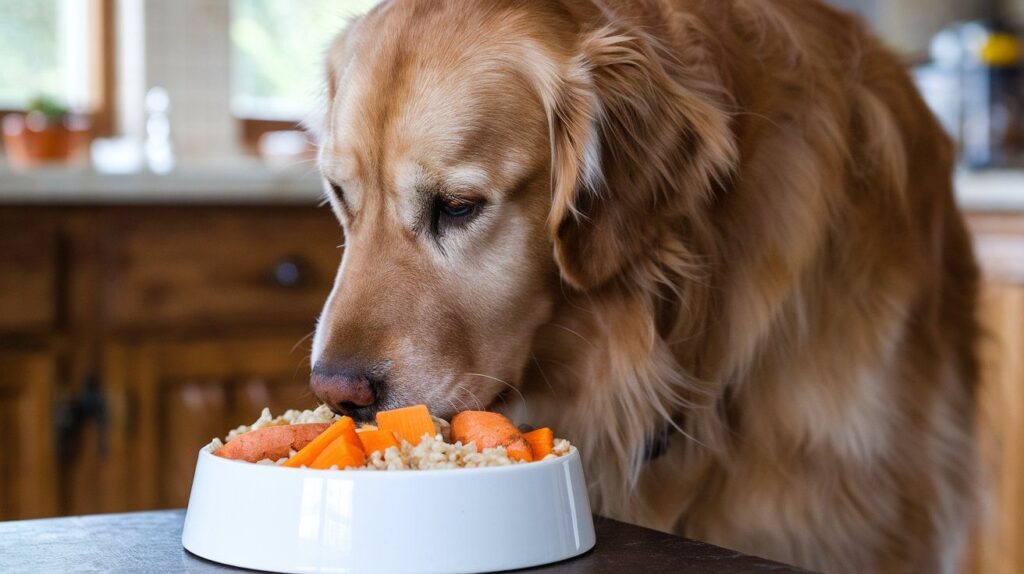
Protein-Enriched Rice Treats
Incorporating cooked beef heart or kidney pieces into your rice treats can turn them into a nutrient-rich snack. Both are high in protein and essential vitamins but should be served in moderation to manage fat intake, particularly with beef kidney. This addition makes the treats not only tasty but also beneficial for your dog’s muscle development and overall health.
Rice Cakes
Low-sodium, plain rice cakes can be a great crunchy treat for dogs. They contain minimal ingredients and are free from the high sugars and fats typical of many dog treats. Always choose unsalted and unflavored varieties to ensure they are dog-safe. For an extra treat, topping a rice cake with a thin layer of raw beef fat can provide a taste that dogs crave, though it’s important to keep such treats occasionally to avoid excessive fat intake.
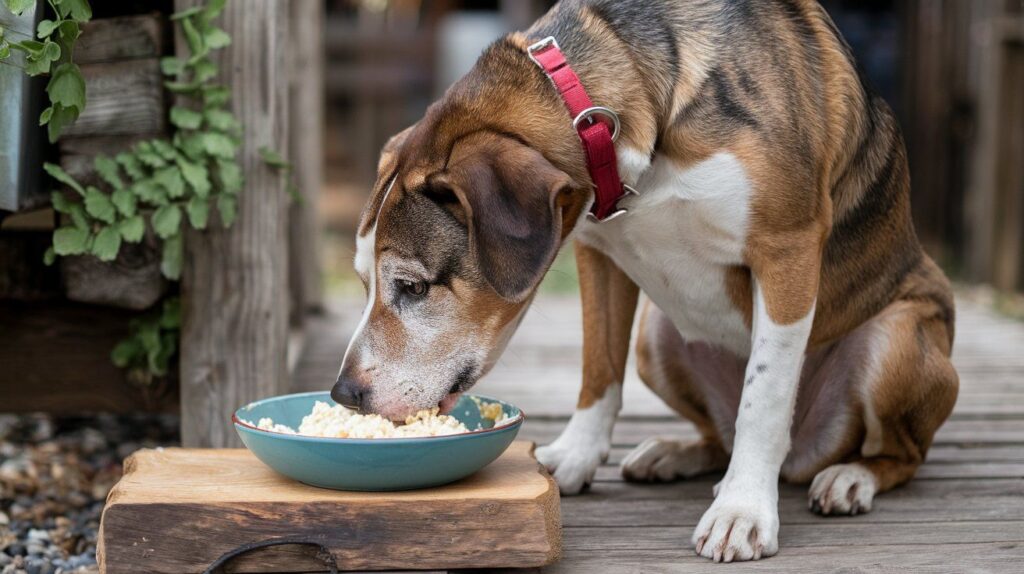
Commercial Dog Treats
If you’re looking for convenience, many commercial dog treats are available that are formulated to be tasty and nutritious while catering to dogs’ dietary restrictions. Look for treats that list natural ingredients and are free from artificial sweeteners, colours, and preservatives. Some specially formulated treats may include safe versions of typically risky ingredients, like deboned chicken or specially processed beef, providing the flavours dogs love without the health risks.
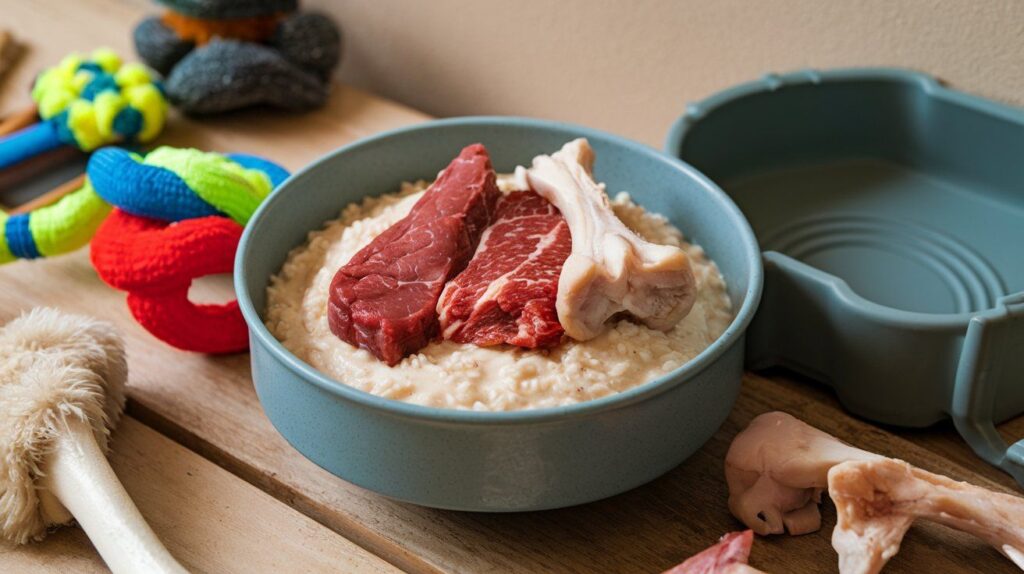
By choosing or making safe and healthy dog treats, you can ensure your pet enjoys their snacks without risking their health. These alternatives provide treatment without the adverse effects of unsuitable human food while introducing beneficial proteins and nutrients through carefully selected additions like beef hearts and chicken feet.
Frequently Asked Questions
Can dogs eat plain rice pudding occasionally?
While plain rice pudding isn’t inherently toxic to dogs, it’s not the best treatment option due to its typical content of dairy and sugars, which can lead to digestive upset and other health issues in dogs. If you do choose to share rice pudding with your dog, ensure it’s in very small quantities and free of any additives like sugar, artificial sweeteners, or toxic spices.
What should I do if my dog eats rice pudding with raisins?
If your dog consumes rice pudding that contains raisins, it’s important to act quickly. Raisins are highly toxic to dogs and can cause acute kidney failure. Contact your veterinarian or an emergency pet clinic immediately, as they may need to induce vomiting or take other measures to prevent the toxins from affecting your dog’s health.
Are there any safe commercial rice pudding brands for dogs?
Commercial rice puddings are typically made for human consumption and are unsuitable for dogs due to their high sugar and dairy content. These products often contain other ingredients, such as xylitol or chocolate, that can harm dogs. It’s safer to avoid commercial rice puddings and instead opt for treats made specifically for dogs.
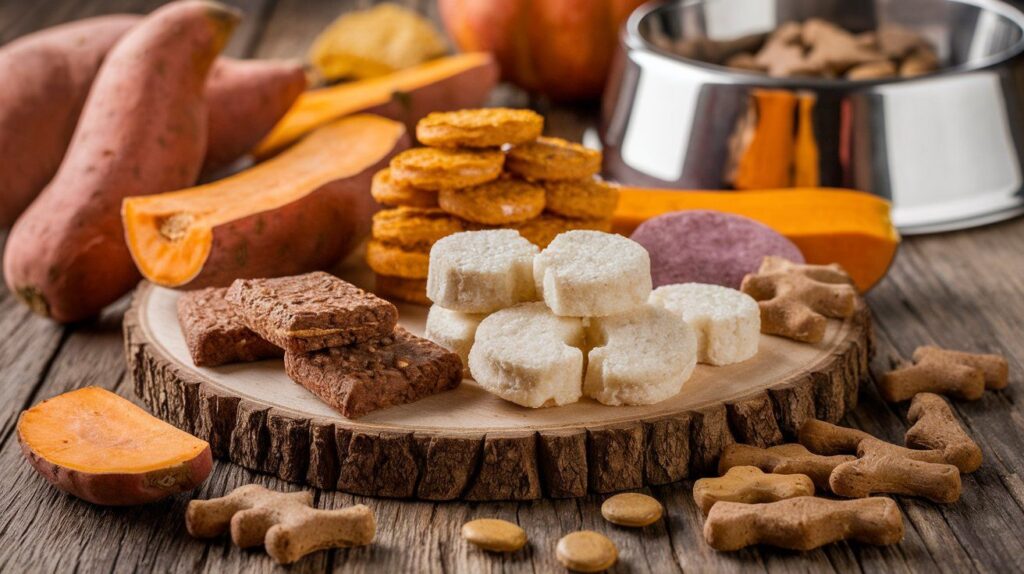
Conclusion
Rice pudding, a human favourite dessert, poses several risks when considered a dog treat. Due to its high sugar and fat content, along with the common inclusion of dairy and potentially toxic additives, it’s best kept away from canine diets. Instead, focus on providing your pet with treats that are formulated for their specific dietary needs, ensuring they are both safe and nutritious. If you’re ever in doubt about what’s safe to feed your pet, consulting with a veterinarian is always the best course of action. By making informed choices about your dog’s diet, you can help them lead a healthy and happy life.





